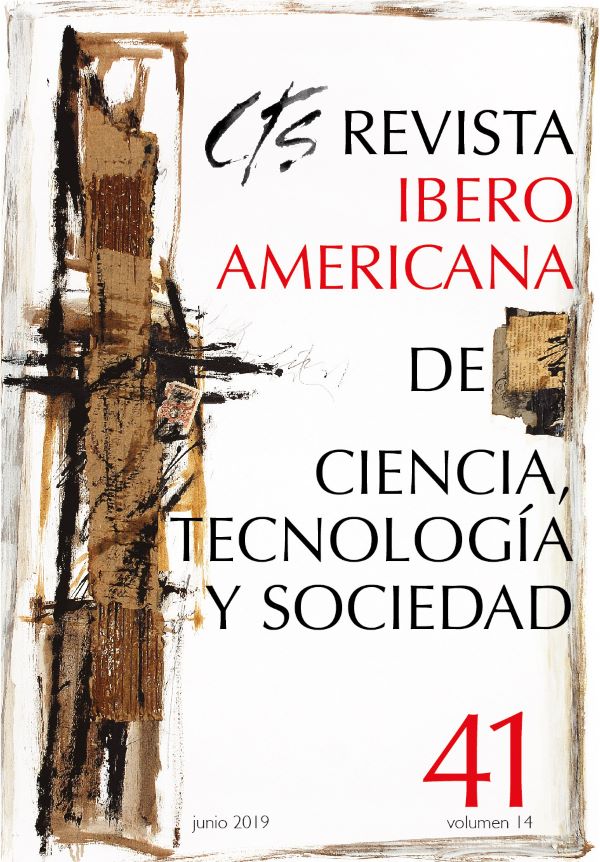Engineers of the Digital Anthropocene: Teaching Engineering in an Uncertain Era
Keywords:
Anthropocene, digital technology, engineering education, dematerialization, digital and environmental humanitiesAbstract
Although it has not been officially approved, the idea that we have now entered the Anthropocene era is becoming more widely accepted. This refers to a geological epoch in which human beings have the capacity to modify the Earth’s system as a whole. Because technology plays a fundamental role in this transformation, it is crucial to reflect on the consequences, both positive and undesired, of emerging technologies, including digital technologies. Many hopes have been placed on digital technologies when it comes to reversing the troubling paths of the Anthropocene, but there are also voices that warn of the bleaker dimension of the “digital Anthropocene”. With this in mind, engineering education should include the study and analysis of these topics, so that future engineers will be able to efficiently deal with the problems they encounter in the performance of their professional duties. It is necessary to promote a rapprochement between the new digital and environmental humanities and the technical qualifications, so that they can collaborate in the resolution of the problems of this new era.Downloads
References
ARIAS, M. (2018): Antropoceno. La política en la era humana, Madrid, Taurus.
DE CÓZAR, J. M. (2017): “¿Qué significa vivir en el Antropoceno?”, Iberoamérica divulga, octubre. Disponible en: http://www.oei.es/historico/divulgacioncientifica/?que-significa-vivir-en-el-antropoceno.
DE CÓZAR, J. M. (2018): “Haciendo más salvaje el Antropoceno. Rewilding y domesticación”, Athenea digital, vol. 19, n° 1, pp. 1-21. Disponible en: https://atheneadigital.net/article/view/v19-1-decozar/2214-pdf-es.
DE ROSNAY, J. (2015): “Artificial Intelligence: Transhumanism is Narcissistic. We Must Strive for Hyperhumanism", L'OBS Le Plus. Disponible en: https://www.crossroads-to-the-future.com/articles/artificial-intelligence-transhumanism-is-narcissistic-we-must-strive-for-hyperhumanism/.
DOUEIHI, M. (2013): “About digital humanism”, Ideas. Disponible en: https://www.inaglobal.fr/en/ideas/article/about-digital-humanism?tq=17.
FERNÁNDEZ, R. (2011): El Antropoceno. La expansión del capitalismo global choca con la biosfera, Barcelona, Virus Editorial.
FERRI, L. (2017): La revolución transhumanista, Madrid, Alianza.
GIL, M. (2018): “Ecología del papel versus ecología digital”. Disponible en: https://antinomiaslibro.wordpress.com/2018/01/08/ecologia-del-papel-versus-ecologia-digital/
HAMILTON, C., BONNEUIL, C. y GEMENNE, F. (2015): The Anthropocene and the Global Environmental Crisis, Londres, Routledge.
HAN, B. H. (2014): Psicopolítica. Neoliberalismo y nuevas formas de poder, Barcelona, Herder.
NEIMANIS, A., ÅSBERG, C. y HEDRÉN, J. (2015): “Four problems, four directions for environmental humanities: Toward critical posthumanities for the Anthropocene”, Ethics & the Environment, vol. 20, n° 1, pp. 67-97.
NOWVISKIE, B. (2015): “Digital humanities in the Anthropocene”, Digital Scholarship in the Humanities, vol. 30, suppl. 1, pp. i4-i15.
QUINTANILLA, M.A., PARSELIS, M., SANDRONE, D. y LAWLER, D. (2017): Tecnologías entrañables, Madrid, OEI-Catarata.
RULL, V. (2018): El Antropoceno, Madrid, CSIC-Catarata.
SMITHIES, J. (2017): The digital humanities and the digital modern, Londres, Palgrave Macmillan.
STIEGLER, B. (2014): “Digital Humanities”. Disponible en: https://www.academia.edu/12692243/Bernard_Stiegler_Digital_Humanities_2014_.
STIEGLER, B. (2015): “Escaping the Anthropocene”. Disponible en: https://www.academia.edu/12692287/Bernard_Stiegler_Escaping_the_Anthropocene_2015_
STIEGLER, B. (2018): “The Anthropocene and Neganthropology” The Neganthropocene, Open Humanities Press.
TRAVIS, C. y HOLM, P. (2016): “The Digital Environmental Humanities”, en C. Travis y A. von Lünen (eds.): The Digital Arts and Humanities, Springer.
Downloads
Published
How to Cite
Issue
Section
License
All CTS's issues and academic articles are under a CC-BY license.
Since 2007, CTS has provided open and free access to all its contents, including the complete archive of its quarterly edition and the different products presented in its electronic platform. This decision is based on the belief that offering free access to published materials helps to build a greater and better exchange of knowledge.
In turn, for the quarterly edition, CTS allows institutional and thematic repositories, as well as personal web pages, to self-archive articles in their post-print or editorial version, immediately after the publication of the final version of each issue and under the condition that a link to the original source will be incorporated into the self-archive.











